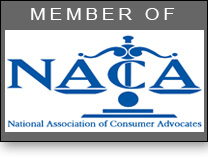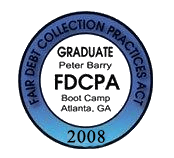As discussed in a prior post, the Florida Consumer Collection Practices Act (FCCPA) can apply to both debt collectors (like collection agencies) and lenders who seek to collect their own debts. The FCCPA is broader than the federal Fair Debt Collections Practices Act (FDCPA), which only regulates the behavior of third-party “debt collectors.” This is by design, as the Florida legislature intended the state statute to supplement the consumer protections provided by federal law.
The FCCPA regulates the debt collection practices of lenders in a variety of ways. Some of the more significant provisions of the FCCPA include the following:
- When a loan is assigned, the assignee must provide written notice to the debtor of the assignment within 30 days.
- A person may not attempt to enforce a debt which the person knows is not legitimate. Similarly, a person may not claim some legal right when that person knows that the right does not exist.
- Anyone collecting a debt may not engage in dishonest or harassing debt collection practices. Practices specifically prohibited include impersonating a law enforcement officer, threatening force or violence, using profane or abusive language, publishing a “deadbeat list”, mailing communication to a debtor on a postcard, or communicating with a debtor’s employer without prior permission or a final court order concerning the debt.
- With some exceptions, a person seeking payment of a debt may not communicate directly with a debtor if the person collecting a debt knows that the debtor is represented by counsel with regard to the matter.
The FCCPA provides a civil cause of action for debtors who believe their rights have been violated. A plaintiff must file a claim within two years of an alleged violation. If a plaintiff prevails on an FCCPA claim, then a defendant may be required to pay actual damages, statutory damages of up to $1,000.00, and the court costs and attorneys’ fees of the plaintiff. The fee-shifting provision of the FCCPA normally creates the greatest risk for a lender in contentious litigation.













